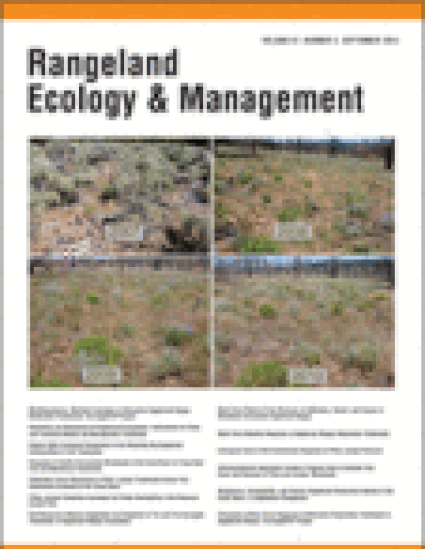
Article
Acceptance, acceptability and trust for sagebrush restoration options in the Great Basin: A longitudinal perspective
Rangeland Ecology and Management
(2014)
Abstract
In surveys of residents in three urban and three rural locations in the Great Basin (US) we examined the social acceptability of six management practices showing promise for restoring sagebrush-dominated rangelands. Unlike most studies of range management perceptions that have relied on single measurements, we used longitudinal data from a questionnaire mailed in 2006 to residents that were re-surveyed in 2010. Overall, 698 respondents comprised the panel. Respondents' self-reported levels of knowledge about the health and management of Great Basin rangelands decreased from 2006 to 2010. In both years, mean acceptance was greater for the use of prescribed fire, grazing, felling, and mowing, but relatively low for chaining and herbicide use. Overall, acceptability ratings were similar in 2006 and 2010 but individually about half of the acceptance responses differed between years. Practices were more acceptable to respondents who expressed greater concern about threats posed by inaction, except that the threat of wildfire was negatively associated with acceptance for prescribed burning. ..
Keywords
- fuels reduction,
- restoration,
- mail survey,
- public perceptions,
- trust
Disciplines
Publication Date
2014
DOI
https://doi.org/10.2111/REM-D-13-00016.1
Publisher Statement
Ahead of Print
Citation Information
Mark W. Brunson. "Acceptance, acceptability and trust for sagebrush restoration options in the Great Basin: A longitudinal perspective" Rangeland Ecology and Management Vol. 67 Iss. 5 (2014) p. 573 - 583 Available at: http://works.bepress.com/mark_brunson/115/
